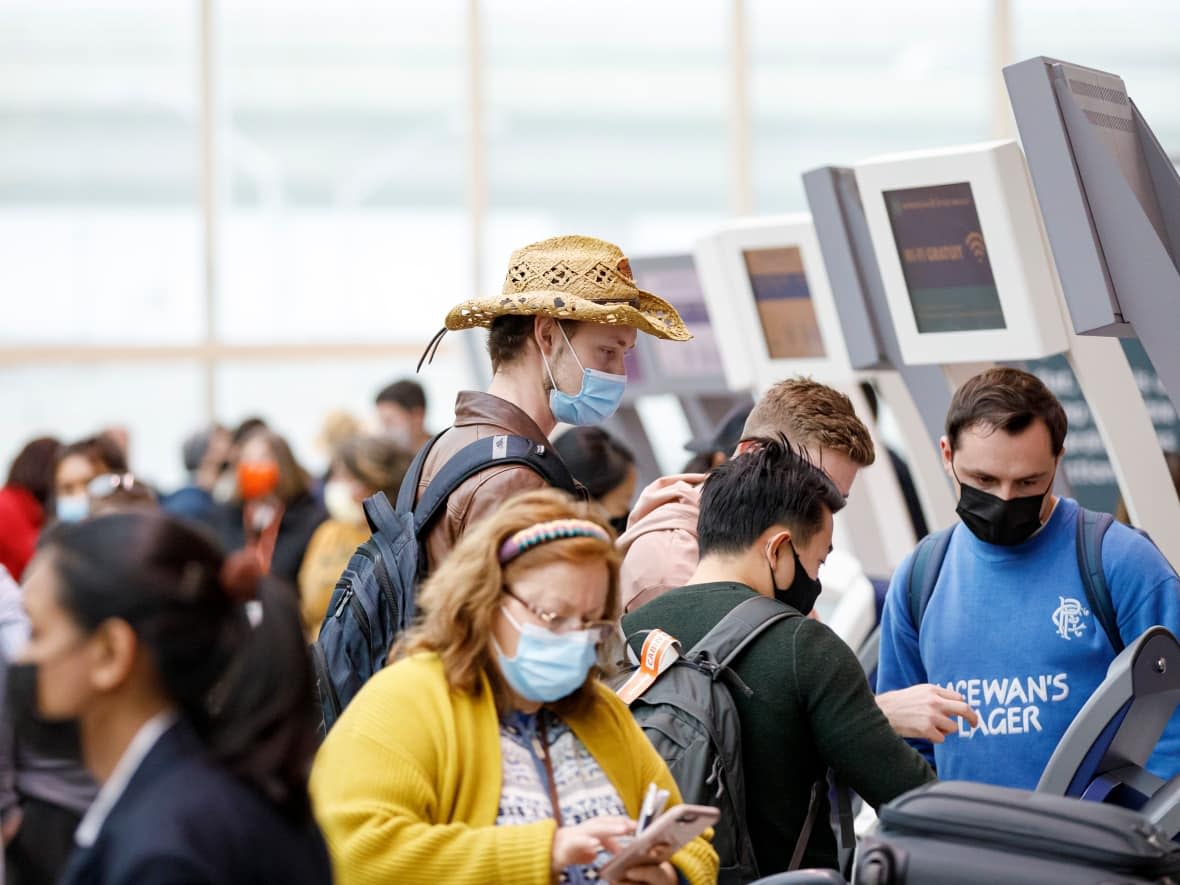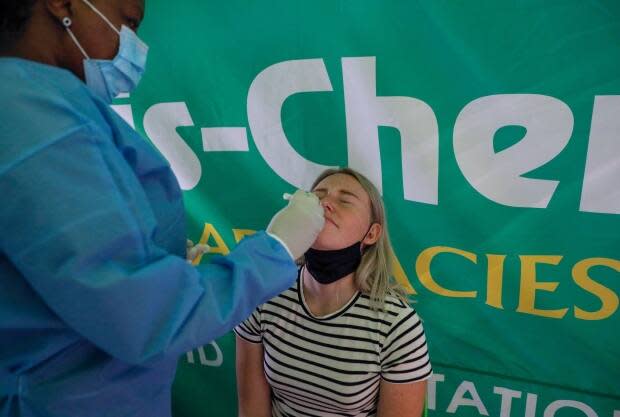Dreaming about spending March Break abroad? Here are some risks to consider

If the call of beaches or European cafés is becoming too much to resist, one travel expert suggests planning ahead is key to preventing your trip from becoming a logistical nightmare.
Martin Taller is a professor in the tourism and travel program at Algonquin College and owned a travel agency for 28 years.
The travel and hospitality industries started rehiring in late 2021, Taller said — although that paused when the Omicron variant surged and forced stricter public health measures, including an advisory from the Canadian government to avoid non-essential travel.
Still, Statistics Canada tallied 742,417 Canadian air-passenger arrivals returning home from abroad in December.
Taller said it's not necessarily a bad time to travel, with people reporting that "beaches and hotels may be at 30 per cent or 40 per cent of the potential occupancy."
With off-season rates and nearly deserted tourist locales potentially continuing for another six months to a year, Taller said it's understandable travelers may feel they can't deny themselves any longer — but with COVID-19, there are a lot more logistics to consider than there used to be.
Sightseeing struggles
Aside from the health concerns, getting around once you've arrived might be more difficult, especially if you're considering a European destination, Taller said.
Attractions may have rules about mask-wearing or shorter opening hours, so he suggests checking to see what you'll be able to do once you arrive.
While beach time sounds like a reasonably safe bet, Taller says the risk of getting stuck on that beach for longer than planned can be enough to keep people from planning a trip.
"Things are much more stable when you leave, but when you come home, things have changed and you want to make sure that you have access to the most current information," he said.
Snowbirds who leave for months at a time should stay on top of changing COVID-19 requirements, he added. There's also a risk for those with tight deadlines, like needing to get kids back to school by the end of March Break.

To enter Canada, air passengers must show proof of a negative COVID-19 test taken within 72 hours of departure. If a traveller tests positive, they must wait at least 11 days before boarding a flight home.
"Pick a destination [where] you can comfortably and easily get your testing done to be able to return home," Taller advised.
Other delays could also crop up, as Canada's main airlines have cancelled flights because so many crew members have contracted COVID-19 or are in isolation.
Will insurance cover you?
Buying travel insurance has always required people to take into account things like pre-existing health conditions or the need for a trip cancellation policy.
Taller says there are policies you can purchase that will cover expenses related to contracting COVID-19, including trip interruption — but many won't.
"One destination which has been a favourite for eastern Canadians has been Florida. And Florida is one of those states where it's much less restrictive in terms of entry," he said.
"But the question is — if God forbid you should become ill — do you require or should you have travel insurance?"

He says to look carefully at exclusions written into a policy because getting hit with a hospital bill outside of Canada can be cripplingly expensive.
Another consideration is what constitutes a valid reason for trip cancellation. Some Ottawa travellers have found that while they were covered if they contracted COVID-19, their cancellation insurance didn't kick in when they chose to follow government advice and pre-emptively call off their plans.
Taller also cautioned that travel agencies may ask you to sign a waiver clearing them of any liability should something go wrong, particularly if you're not vaccinated or following public health measures.
Most businesses, including air carriers, have been forgiving about rebooking in these strange times, he said.
"This is one of those industries that wants to encourage people to travel when they are able, rather than force them to travel," he said.
"I think it's really important to know the industry itself survives on goodwill."

 Yahoo Movies
Yahoo Movies 
